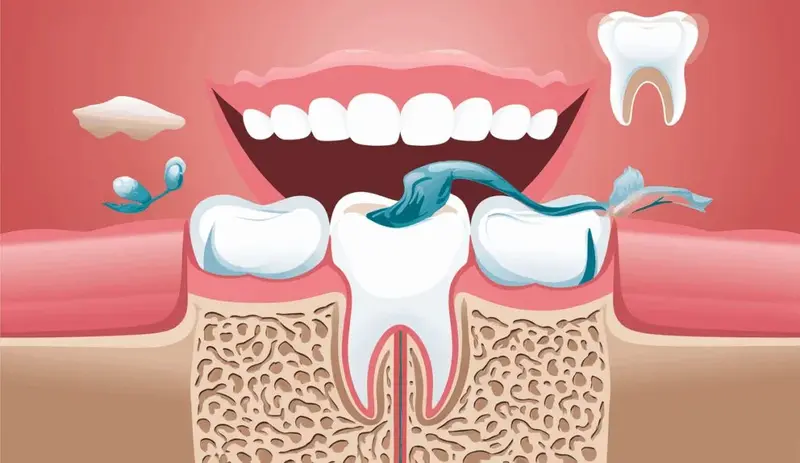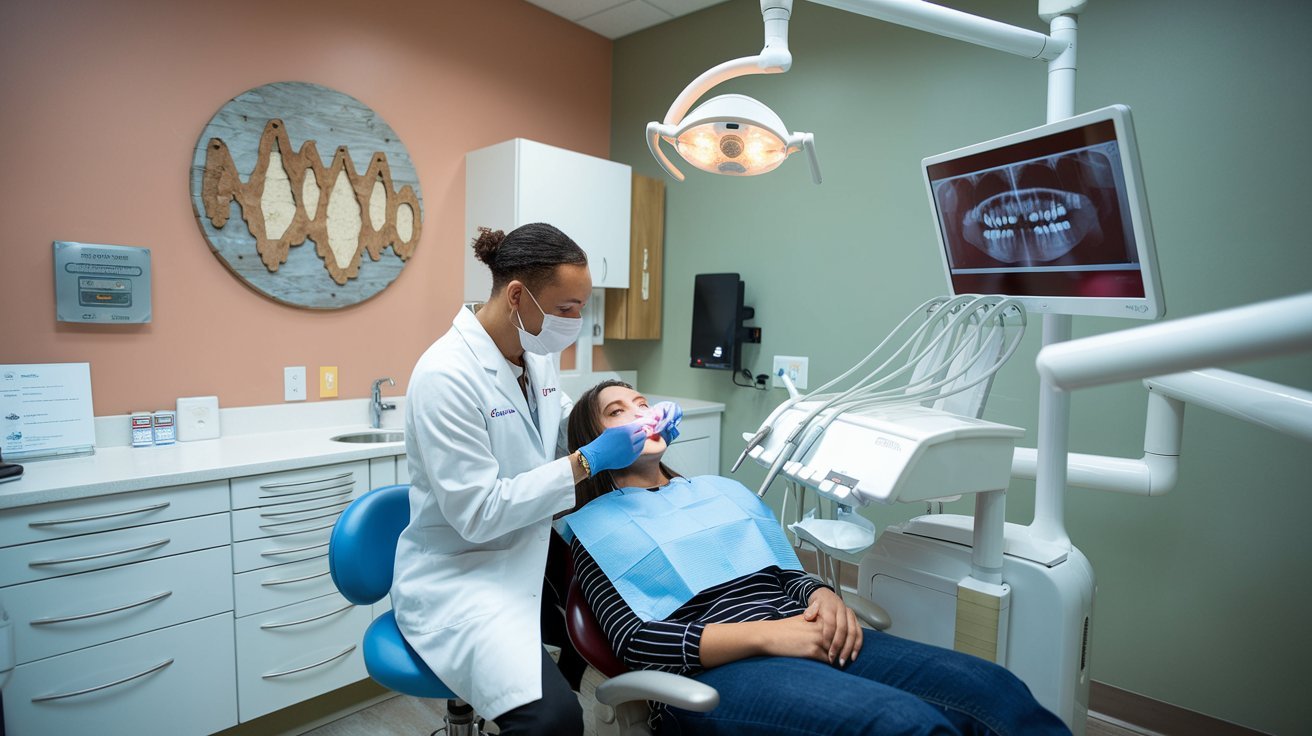Snoring is a common issue that affects millions of people worldwide. While it is often dismissed as a harmless nuisance, snoring can have serious implications for both your overall health and your oral health. At our dental clinic in Houston TX, we understand that snoring can be a sign of underlying health issues, including sleep apnea, which can have a direct impact on your teeth and gums. In this comprehensive guide, we will explore how snoring affects your oral health, the potential risks involved, and the treatments available to help you manage snoring and protect your smile.
What Causes Snoring?
Snoring occurs when the flow of air through the mouth and nose is partially obstructed during sleep. This obstruction causes the tissues in the throat to vibrate, producing the characteristic sound of snoring. While occasional snoring is common, chronic snoring can be a sign of more serious health issues, such as obstructive sleep apnea (OSA).
Common Causes of Snoring:
- Obstructive Sleep Apnea (OSA): A condition where the airway becomes blocked during sleep, causing breathing interruptions and loud snoring.
- Nasal Congestion: Allergies, colds, or sinus infections can cause nasal passages to become blocked, leading to snoring.
- Excess Weight: Being overweight can contribute to snoring, as extra fat around the neck can compress the airway.
- Sleeping Position: Sleeping on your back can cause the tongue and soft palate to collapse to the back of the throat, leading to snoring.
- Alcohol and Sedatives: These substances relax the muscles in the throat, increasing the likelihood of snoring.
- Anatomy of the Mouth and Throat: Enlarged tonsils, a long uvula, or a deviated septum can contribute to snoring.
At our dental office in Houston TX, we often see patients who are concerned about their snoring and its impact on their oral health. Understanding the underlying causes of snoring is essential in addressing the issue and preventing potential complications.
The Impact of Snoring on Oral Health
Snoring can have a significant impact on your oral health, leading to a variety of dental issues if left unaddressed. Here are some of the ways snoring can affect your teeth and gums:
1. Dry Mouth (Xerostomia)
One of the most common oral health issues associated with snoring is dry mouth, also known as xerostomia. When you snore, you are more likely to breathe through your mouth rather than your nose. Mouth breathing during sleep can cause the mouth to dry out, as it reduces the flow of saliva.
Impact of Dry Mouth on Oral Health:
- Increased Risk of Cavities: Saliva plays a crucial role in maintaining oral health by neutralizing acids, washing away food particles, and preventing the growth of harmful bacteria. A lack of saliva can lead to an increase in cavity-causing bacteria, raising the risk of tooth decay.
- Gum Disease: Dry mouth can also contribute to the development of gum disease. Without adequate saliva, bacteria can accumulate along the gumline, leading to inflammation, gingivitis, and eventually periodontitis if left untreated.
- Bad Breath: The absence of saliva allows bacteria to thrive, leading to halitosis (bad breath), which can be persistent and difficult to manage.
At our dental clinic in Houston TX, we emphasize the importance of addressing dry mouth to prevent these complications. Patients who snore regularly should be aware of the risks and take steps to keep their mouths hydrated.
2. Gum Disease
Gum disease, also known as periodontal disease, is another potential consequence of chronic snoring. As mentioned earlier, dry mouth caused by snoring can lead to an accumulation of bacteria along the gumline. This can result in inflammation and infection of the gums.
Stages of Gum Disease:
- Gingivitis: The earliest stage of gum disease, characterized by red, swollen, and bleeding gums. Gingivitis is reversible with proper oral hygiene and dental care.
- Periodontitis: If gingivitis is left untreated, it can progress to periodontitis, a more severe form of gum disease. Periodontitis involves the loss of gum tissue and bone that support the teeth, leading to loose teeth and potential tooth loss.
- Advanced Periodontitis: In the most severe cases, periodontitis can cause the destruction of the bone and connective tissue that hold teeth in place, resulting in tooth loss and other complications.
At our dental office in Houston TX, we provide periodontal therapy to treat and manage gum disease. If you are a chronic snorer, regular dental check-ups are essential to catch gum disease in its early stages and prevent it from progressing.
3. Tooth Wear and Damage
Chronic snoring is often associated with obstructive sleep apnea (OSA), a condition that can lead to bruxism (teeth grinding) during sleep. Bruxism occurs when the teeth grind together, often as a response to the body’s efforts to reopen the airway during episodes of interrupted breathing.
Impact of Bruxism on Oral Health:
- Tooth Wear: Over time, bruxism can cause significant wear and tear on the teeth, resulting in flattened, chipped, or fractured teeth.
- Tooth Sensitivity: As the enamel wears down, the underlying dentin becomes exposed, leading to increased tooth sensitivity.
- Jaw Pain and TMJ Disorders: The excessive force exerted during grinding can cause pain and discomfort in the jaw, leading to temporomandibular joint (TMJ) disorders.
- Cracked Teeth: Severe bruxism can lead to cracked or broken teeth, which may require restorative treatment such as crowns or fillings.
At our dental clinic in Houston TX, we offer custom night guards to protect your teeth from the damaging effects of bruxism. If you snore and experience symptoms of bruxism, it’s important to seek treatment to prevent further damage to your teeth.
4. Oral Inflammation
Snoring can lead to chronic inflammation in the oral tissues. The constant vibration of the soft tissues in the throat and mouth during snoring can cause irritation and inflammation. This inflammation can affect the gums, tongue, and other soft tissues in the mouth.
Impact of Oral Inflammation on Health:
- Gum Sensitivity: Chronic inflammation can make the gums more sensitive and prone to bleeding, even with gentle brushing or flossing.
- Increased Risk of Infection: Inflamed oral tissues are more susceptible to infection, which can lead to abscesses or other oral health issues.
- Discomfort: Inflammation in the mouth can cause discomfort or pain, making it difficult to eat, speak, or perform daily oral hygiene tasks.
At our dental office in Houston TX, we work closely with patients who snore to monitor and manage oral inflammation. We provide personalized care to reduce inflammation and protect the health of your gums and soft tissues.
5. Impact on Dental Restorations
If you have dental restorations such as crowns, bridges, or implants, chronic snoring and the associated issues can affect their longevity and integrity. For example, bruxism caused by snoring can place excessive pressure on these restorations, leading to their premature failure.
Impact on Dental Restorations:
- Crown Damage: Bruxism can cause crowns to crack or become dislodged.
- Bridge Wear: The excessive force from grinding can wear down bridges, affecting their fit and function.
- Implant Complications: Although dental implants are durable, they are not immune to the effects of bruxism. Excessive grinding can cause the implant to become loose or damage the surrounding bone.
At our dental clinic in Houston TX, we provide maintenance and repair services for dental restorations affected by snoring-related issues. We also offer preventive solutions, such as night guards, to protect your restorations from damage.
Managing Snoring and Protecting Your Oral Health
If you snore regularly, it’s important to take steps to manage the issue and protect your oral health. At our dental office in Houston TX, we offer a range of treatments and services designed to help you address snoring and its impact on your teeth and gums.
1. Oral Appliance Therapy
Oral appliance therapy involves the use of a custom-made oral device that is worn during sleep to help keep the airway open. These devices, often referred to as mandibular advancement devices (MADs), work by gently repositioning the lower jaw forward, preventing the collapse of the airway and reducing snoring.
Benefits of Oral Appliance Therapy:
- Non-Invasive: Oral appliances are a non-invasive alternative to surgical treatments or continuous positive airway pressure (CPAP) therapy.
- Comfortable and Convenient: The custom-fit devices are comfortable to wear and easy to travel with.
- Effective: For many patients, oral appliance therapy is effective in reducing or eliminating snoring and improving sleep quality.
At our dental clinic in Houston TX, we offer custom oral appliances for patients who snore. These devices are tailored to your unique anatomy, ensuring optimal comfort and effectiveness.
2. Night Guards for Bruxism
If your snoring is associated with bruxism, wearing a custom night guard can protect your teeth from the damaging effects of grinding. Night guards create a protective barrier between the upper and lower teeth, reducing the risk of tooth wear, fractures, and jaw pain.
Benefits of Night Guards:
- Protects Teeth: Night guards prevent direct contact between the upper and lower teeth, reducing the risk of wear and damage.
- Reduces Jaw Pain: By minimizing the pressure exerted on the jaw, night guards can alleviate pain and discomfort associated with TMJ disorders.
- Custom Fit: Our night guards are custom-made to fit your mouth comfortably, ensuring that you can wear them throughout the night without discomfort.
At our dental office in Houston TX, we provide custom night guards for patients who grind their teeth due to snoring or sleep apnea. These guards are designed to protect your teeth and improve your oral health.
3. Regular Dental Check-Ups
Regular dental check-ups are essential for monitoring the health of your teeth and gums, especially if you snore. These visits allow us to detect and address any issues early on, preventing them from progressing into more serious problems.
What to Expect During a Check-Up:
- Oral Examination: We will examine your teeth, gums, and oral tissues for signs of wear, inflammation, cavities, and gum disease.
- Dental Cleaning: A professional cleaning will remove plaque and tartar buildup, helping to prevent cavities and gum disease.
- X-Rays: If necessary, we may take X-rays to check for hidden dental issues, such as cavities between the teeth or bone loss associated with gum disease.
- Personalized Advice: Based on our findings, we will provide personalized advice on how to manage your snoring and protect your oral health.
At our dental clinic in Houston TX, we recommend that patients who snore schedule regular check-ups every six months, or more frequently if needed, to ensure that their oral health is maintained.
Conclusion: Protecting Your Oral Health with the Help of Our Dental Clinic in Houston TX
Snoring is more than just an annoyance; it can have serious consequences for your oral health. From dry mouth and gum disease to tooth wear and bruxism, the effects of snoring on your teeth and gums should not be underestimated. At our dental clinic in Houston TX, we are committed to helping our patients manage their snoring and protect their oral health through comprehensive care and personalized treatment plans.
If you are concerned about how snoring is affecting your teeth and gums, or if you are experiencing any of the issues discussed in this article, we encourage you to schedule a consultation with our dentist in Houston TX today. Our experienced team is here to provide you with the care and support you need to maintain a healthy, beautiful smile.
Contact our dental clinic in Houston TX to learn more about how we can help you manage your snoring and protect your oral health. We look forward to being a part of your journey to better sleep and a healthier smile.




![Braces Cost in Houston 2025 [Affordable Treatment]](https://lifeworksdental.com/wp-content/uploads/2025/01/Braces-Cost-in-Houston-2025.jpeg)

